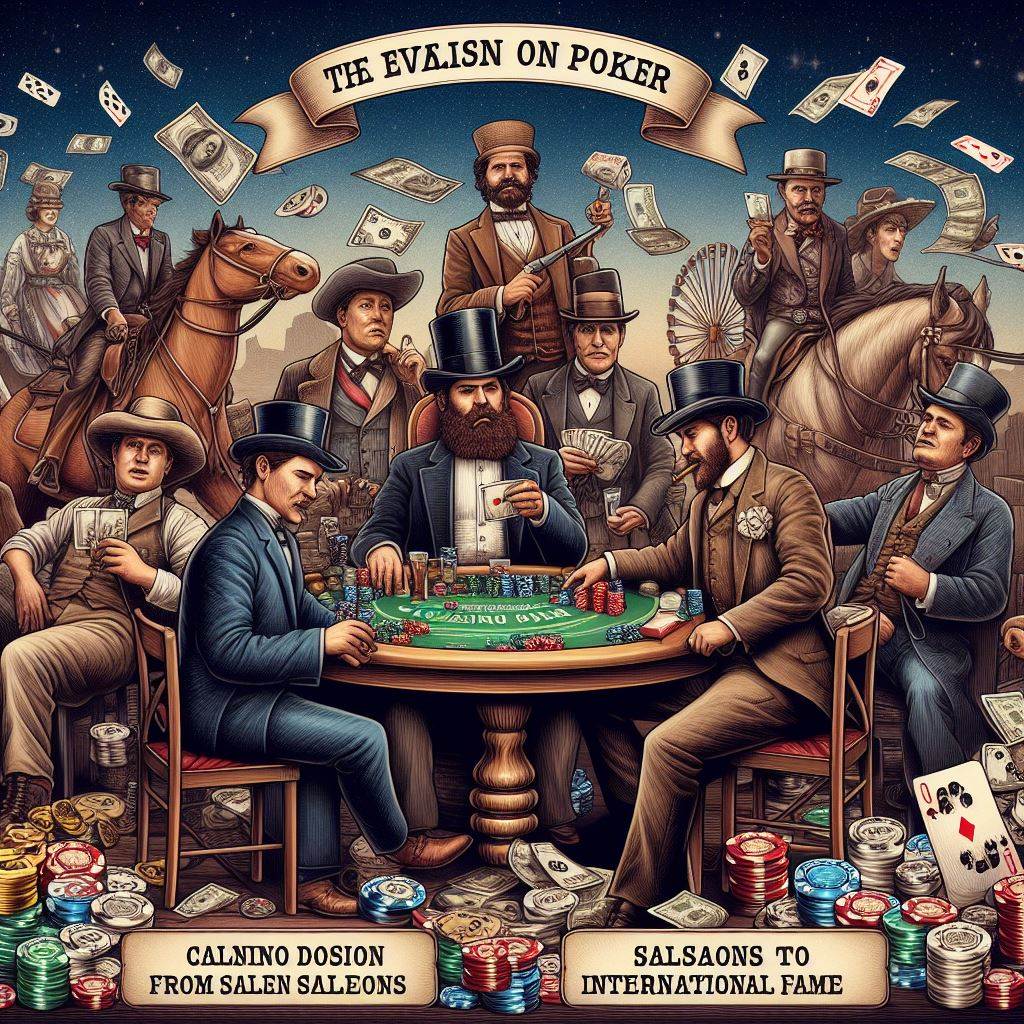The journey of casino poker from the rugged saloons of the American Saloons to International Fame frontier to the opulent gaming floors of global casinos is a compelling narrative of cultural integration, technological advancements, and the indomitable spirit of a game that has become synonymous with strategy, skill, and the unpredictable thrill of chance. This evolution is not just about a card game but about poker as a reflection of human society, adaptability, and the quest for competitive excellence.
The Early Days: Saloons and Riverboats
Poker’s origins are somewhat murky, with influences drawn from various Saloons to International Fame card games played in Europe in the 18th and 19th centuries. However, it truly began to take shape in the United States in the early 1800s. The game found its first home in the saloons of New Orleans and spread northward via the Mississippi River and westward with the Gold Rush. In these early days, poker was a straightforward game, but it was already weaving itself into the fabric of American culture, embodying the frontier spirit of risk-taking and adventure.
Poker Goes West
As America expanded westward, poker became a staple of frontier life. The game was a common pastime among cowboys, miners, soldiers, and outlaws in the saloons that dotted the western Saloons to International Fame territories. These establishments were more than just places to gamble; they were vital social hubs where news was exchanged, and communities were formed. In this era, poker began to develop its complex strategy and the psychological elements that define it today.
The Rise of Casino Poker
The legalization of gambling in Nevada in 1931 marked Saloons to International Fame a significant turning point for poker. With the establishment of legal casinos, poker moved from the somewhat lawless environment of saloons and backrooms into a regulated, mainstream setting. This transition not only increased poker’s popularity but also led to the standardization of rules and the introduction of formal tournaments, laying the groundwork for poker as a professional sport.
The Boom of the Late 20th Century
The latter half of the 20th century saw poker’s popularity explode, thanks in part to the World Series of Poker (WSOP), first held in 1970. The WSOP turned poker into a spectator sport, attracting players from around the world and turning skilled players into celebrities. This period also saw the introduction of Texas Hold’em, which would become the most popular form of poker globally, known for its simplicity, complexity, and suitability for television.
The Digital Revolution
The advent of the internet and online gaming in the late 1990s and early 2000s brought poker to a global audience. Online poker platforms allowed players from different continents to compete against each other, drastically increasing the game’s popularity and competitive level. The 2003 World Series of Poker victory by Chris Moneymaker, an amateur player who qualified through an online tournament, epitomized the new era of poker, where anyone with skill and a bit of luck could achieve fame and fortune.
Poker Today: A Global Phenomenon
Today, poker is a global phenomenon, played by millions of people in casinos, in online platforms, and at home. It is a game that transcends cultural and national boundaries, with major tournaments held in cities around the world. Poker has also become a significant part of popular culture, featured in movies, television shows, and literature, further cementing its status as a universal symbol of strategy, risk, and the human desire to test one’s luck and skill against others.
Conclusion
The evolution of casino poker from the saloons of the American frontier to its current status as a game of international fame is a testament to its enduring appeal. It has adapted to changing times and technologies, reflecting the shifting landscapes of society and entertainment. Poker remains a game deeply rooted in strategy, psychology, and the timeless allure of the gamble, continuing to draw players from all walks of life to the table.
